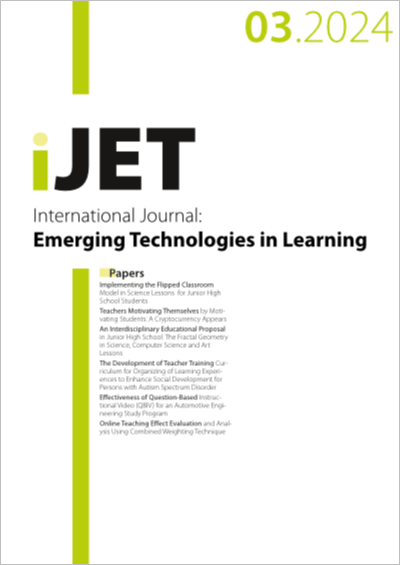Effectiveness of Question-Based Instructional Video (QBIV) for an Automotive Engineering Study Program
DOI:
https://doi.org/10.3991/ijet.v19i03.47785Keywords:
instructional video, vocational education, vocational teacher, automotive education, vocational learningAbstract
The advancement of information and communication technology allows for online learning through a variety of media platforms all over the world, one of which is video, which is available online. Video has become an important aspect of education and can be used to convey learning content in class, through blended learning, or through online programs. The goal of this study is to develop a QBIV and evaluate its effectiveness in learning. The learning QBIV was field tested on prospective vocational teachers. The effectiveness of QBIV was evaluated utilizing a posttest-only control group design on automotive vocational teacher candidates. The experimental group included 39 students, while the control group included 42 potential automotive engineering teacher students. The t-test was used to examine the significance of differences in student learning achievement between the experimental and control classes. The analytical results demonstrate that there is a significant difference in learning outcomes between the experimental and control classes. The experimental class outperformed the control class in terms of learning outcomes. As a result, using QBIV for learning is effective.
Downloads
Published
How to Cite
Issue
Section
License
Copyright (c) 2024 Dwi Widjanarko, Muhammad Khumaedi, Adhetya Kurniawan, Tri Santosa, Hadromi

This work is licensed under a Creative Commons Attribution 4.0 International License.



